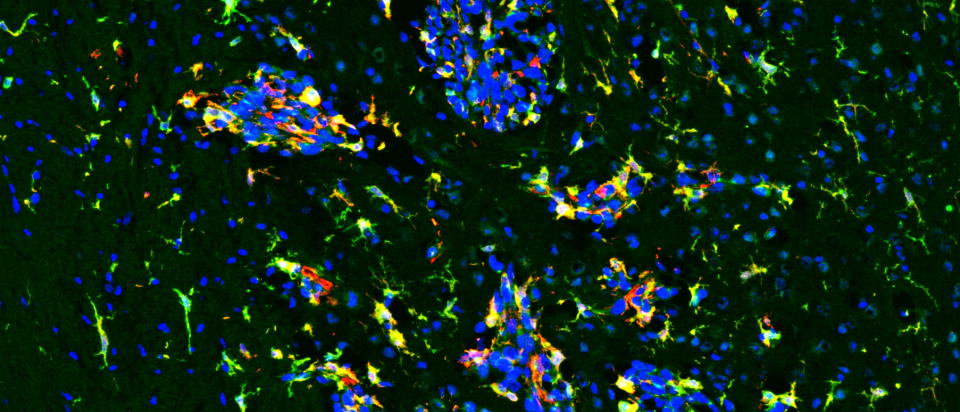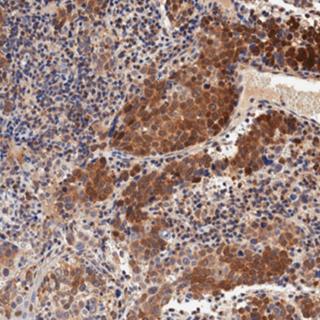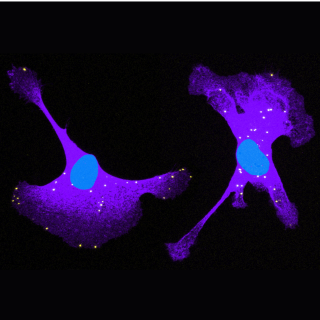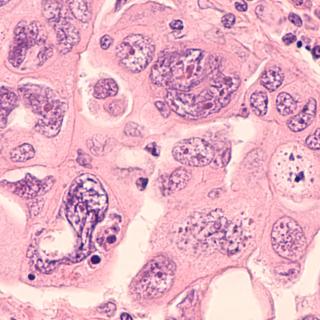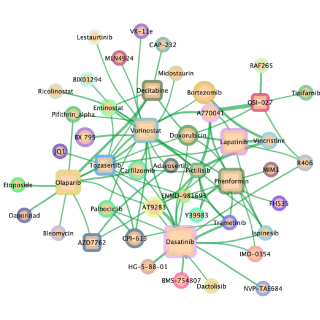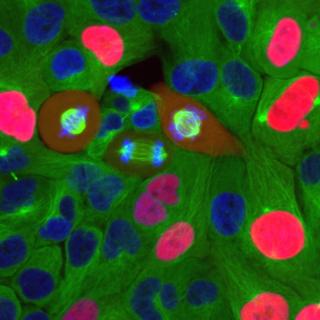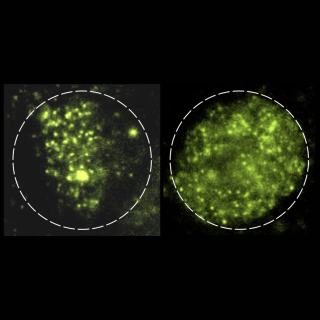News and Events
New Strategy Shows Promise Against Deadly Breast Cancer in the Brain
A new NIH study points to a promising strategy for treating aggressive breast cancer that spreads to the brain, a complication with few effective options. Learn how blocking a key brain cell survival pathway could open the door to future therapies.
Read MoreChromatin modifier linked to immunotherapy resistance in HPV-negative head and neck cancers
Researchers have discovered that a chromatin-regulating enzyme called SMYD3 limits the access of cancer-attacking immune cells to HPV-negative head and neck cancers, therefore decreasing immunotherapy’s effectiveness. Depleting SMYD3 increased the cancer’s sensitivity to a standard immunotherapy drug in mouse models.
Read MoreNew insights explain how the same protein can serve different functions
Proteins can often choose between potential interacting partners and serve different functions inside cells. How these choices are made is not entirely clear. New research shows that the exact location in a cell where the protein is produced and the rate of its synthesis are key factors in this choice.
Read MoreNew T-cell therapy shrinks solid tumors in early-phase clinical trial
Trial results show that engineered T cells can effectively target mesothelin, a protein found on many solid tumors.
Read MoreStudies of an experimental ovarian cancer therapy identify a biomarker of treatment response
A new biomarker may identify patients who can benefit from drugs that inhibit CHK1 after their ovarian cancer has become resistant to PARP inhibitors.
Read MoreRemembering Miranda Leah Hanson-Baseler, an indomitable immunologist
Faced with a uterine sarcoma diagnosis at just 24, Miranda Leah Hanson-Baseler persevered through treatments for 17 years.
Read MoreNew analysis reveals potential effective drug combinations for treating lung cancer
Researchers compared more than 5,000 drug combinations in lung cancer cells, the results of which point to combinations that may be particularly effective in combating cancer in humans.
Read MoreCells’ decision to divide is reversible
Surprising findings show that cells that are preparing to divide can return to a resting state if they lose growth signals, even after they have passed what was previously thought to be a point of no return.
Read MoreDrug combination provides a one-two punch attack against colorectal cancer
Researchers have identified a drug that, when combined with TOP1 inhibitors, results in improved efficacy in human colorectal cancer models — a finding that may apply to other cancers treated with TOP1 inhibitors. The results also yield important insights into our basic understanding of DNA replication and repair.
Read MoreClinical trial researching immunotherapy for tumors with specific genetic deficiencies
Mary Frances Wedekind Malone, D.O., Assistant Research Physician in the Pediatric Oncology Branch, is researching immunotherapy for SMARCB1- and SMARCA4-deficient tumors.
Read MoreClinical trial researching therapy for recurrent respiratory papillomatosis
Scott M. Norberg, D.O., Assistant Research Physician in the Center for Immuno-Oncology, is leading a trial researching drug therapy for recurrent respiratory papillomatosis.
Read More